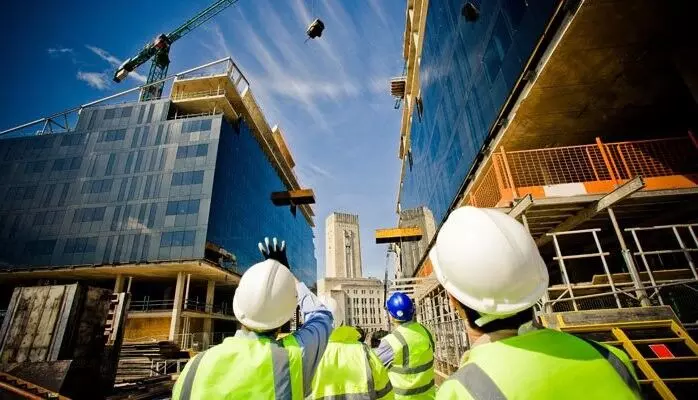Route to resilience
Forensic engineering is an appropriate solution to minimise the frequent incidents of infrastructure collapses across India; write Anuj Goyal, Jatin Singla & Nitin Singla

The Indian government has spearheaded a shift towards prioritising infrastructure development and capital expenditure with an aim to strengthen and boost the Indian economy. The entire nation is a testimony to this unprecedented development.
However, at the same time, there is a focus now on frequent collapses of infrastructure which have grabbed headlines, especially in the last couple of months.
With our experience and expertise in the construction-related field and on-ground work as construction managers, structural designers and civil engineers, we have assessed the insights and identified possible solutions revolving around the domain of forensic engineering!
Faulty project management practices
The fallouts may have resulted due to unprofessional services being rendered by the infrastructure engineering consultants and executing agencies in following the basic principles of industry and best practices of project management.
✼ Among the primary causes of failures are lack of planning and poor project management. Insufficient upfront planning, incomplete design documentation, and unrealistic timelines normally lead to scope creep, cost overruns, and project delays.
✼ Construction projects are inherently complex and involve iterative risks. Failure to identify potential and actual risks, insufficient contingency planning, and inadequate risk mitigation strategies may cost delays, safety hazards, and legal disputes. Thus, it is suggested to implement a robust risk management framework including diligent risk assessments, developing contingency plans, monitoring risks, and adapting strategies as and when required.
✼ The success of a construction project depends largely on a skilled workforce. Lack of sufficient skilled labour, inadequate training, and selecting inexperienced subcontractor management result in poor workmanship, inordinate delays, and compromised quality. Thus, it is imperative to adopt capacity building by adequate skilling and investing in hiring qualified professionals, providing ongoing training and development opportunities, and implementing stringent subcontractor evaluation and management processes.
Necessity of forensic engineering
Recently, India has witnessed a series of bridge and structural collapses that have not only caused significant economic losses but have also tragically claimed lives. These incidents highlight an urgent need for forensic engineering—a specialised field focused on investigating and determining the causes of structural failures. Forensic engineering plays a crucial role in understanding these failures and preventing future occurrences, thereby ensuring the safety and reliability of infrastructure.
Understanding structural failures
Forensic engineering involves a systematic and scientific investigation into the causes of structural failures. By examining materials, design processes, construction practices, and maintenance records, forensic engineers can identify deficiencies and errors that led to the collapse. This analysis often reveals critical insights, such as design flaws, use of substandard materials, inadequate construction practices, or poor maintenance. For instance, a bridge collapse might be traced back to a combination of design errors and the use of inferior construction materials, exacerbated by insufficient inspections and maintenance.
Legal and accountability aspects
When structures fail, there are often legal implications. Forensic engineering provides the technical evidence needed to support legal proceedings, whether they involve civil suits, insurance claims, or criminal prosecutions. Determining liability is essential for holding the responsible parties accountable, be they designers, contractors, or maintenance personnel. This accountability is not just about assigning the blame but also about enforcing standards and practices that prevent future failures.
Enhancing safety standards and regulations
The insights gained from forensic engineering investigations can inform the development and revision of safety standards and regulations. By understanding the root causes of structural failures, regulatory bodies can implement more stringent guidelines and oversight mechanisms. For example, if a particular type of construction material is found to be prone to failure under certain conditions, its use can be restricted or subjected to more rigorous testing and certification processes.
Improving design and construction practices
Forensic engineering findings often lead to advancements in design and construction methodologies. Engineers can learn from past failures and incorporate these lessons into new projects, thereby enhancing the resilience and safety of structures. This continuous improvement cycle is vital in a rapidly developing country like India, where infrastructure development is both extensive and essential for economic growth.
Building public confidence
Frequent structural failures can erode public confidence in infrastructure and governance. Forensic engineering helps restore this confidence by demonstrating a commitment to understanding and addressing the causes of these failures. Transparent investigations and implementation of corrective measures reassure the public that their safety is a priority and that steps are being taken to prevent similar incidents in the future.
Global practices and case studies
As per surveys, there are 22 countries in the world practicing forensic structural engineering, including Italy, the Netherlands, and Spain. Numerous structural collapses have been audited through forensic engineering, providing valuable lessons and insights. Notable examples include the Polcevera Bridge collapse in Genoa, Italy, the Dee Railway Bridge collapse in England, and the I-35W Overpass collapse in Minnesota. These cases highlight the importance of thorough investigations and the implementation of improved safety measures to prevent similar disasters in the future.
Summary
As part of routine construction practices, numerous critical issues, such as cost control, scheduling, procurement, and risk assessment are to be handled. This involves effective integration of all the project management knowledge areas. Apart from these, capacity building of EPC contractors and other stakeholders is of utmost importance.
The recent collapses of bridges and structures in India underscore the critical need for forensic engineering. This specialised field not only helps in identifying the causes of structural failures but also plays a pivotal role in enhancing safety standards, improving design and construction practices, and ensuring legal accountability. By investing in forensic engineering, India can safeguard its infrastructure, protect lives, and build a more resilient and trustworthy environment.
Anuj Goyal is a Sr Construction Professional of NBCC; Jatin Singla is a structural issues expert; and Nitin Singla is a project management professional. Views expressed are personal



